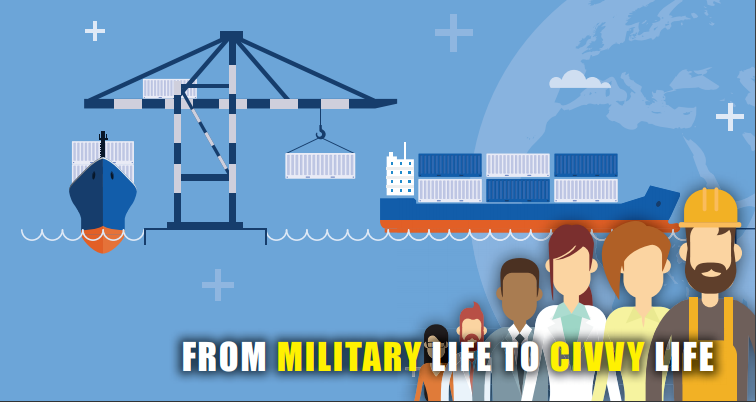
Looking for career opportunities? Don’t underestimate the transport and logistics sector
If you’re looking for career opportunities that will enable you to learn, grow and find variety in your work, don’t underestimate the transport and logistics sector.
The sector has advanced dramatically in the last few decades. Essentially, it enables the movement of goods and services as efficiently as possible. If you consider that every product you own has been shifted or delivered in some way, it’ll hit home about the vital role this sector plays within the economy. With new developments and technology constantly being developed to maximise efficiencies, it’s a fast-evolving sector, offering solid opportunities for career advancement too.
Current sector buzzwords include integration, efficiency, and safety, so you’ll already be familiar with the territory. Currently employing over two million people, logistics accounts for 14% of all employment in the UK. With growth expectations of over 20% by 2022, it could be the right time to swap humvees for HGV’s, and take a closer look into some of the roles available. Of course,
we’re not just talking about surface transport, this sector covers air and sea, in addition to road and rail.
You might be thinking about obvious roles; driving freight trains, delivery vans or lorries, the demand for which currently outstrips supply. If that sounds like an opportunity you want to explore, it’s just a matter of reskilling, based on company requirements and current legislation, e.g. tachograph training. You’ll need to ensure your customer service skills are also honed, as you could be delivering directly to customers, so take advantage of low-cost, high-value service and communication training courses.
Variety
If driving isn’t for you, and you need a different kind of ‘variety’, explore the role of logistics manager. This role oversees a variety of logistics functions which include warehouse and distribution, operations, forecasting, planning, logistics systems, customer service, and purchasing. The role requires leadership skills to manage logistics personnel and to direct daily operations, and an external focus to coordinate third party relationships with logistics suppliers and other members of the supply chain. Elsewhere, inventory managers develop and implement plans to optimise inventory cost and customer service goals at plants, distribution centres, and/ or at retail levels. If you’ve been involved in forecasting needs, analysing patterns, product/asset deployment, and performance reporting, then this might be for you. You’ll be working with purchasing and logistics managers to establish optimal order quantities, inventory targets, and turnover objectives – a meaty, challenging role indeed.
There are also great opportunities for Service-leavers that have been involved in more analytical or IT-based roles within the Armed Forces. Being an analyst is a specialised role that seeks to understand, predict, and enhance logistics processes. If you have strong quantitative and analytical skills, you can build up experience of logistics and production planning concepts through adaptive training. You’ll need a broad range of computer skills, such as those relating to database, spreadsheet and statistical applications before learning specifi c logistics software packages. You’ll need to be self-directed, able to communicate findings, make recommendations, and be capable of managing several projects at once.
Career starting points and paths are varied. Distribution and warehouse roles can lead to senior/director roles in logistics, transportation and facilities
management.
At these levels, it’s more about the ‘softer skills’, with an emphasis on communication (training, team building, negotiation skills, interdepartmental interaction), leadership and supervision (motivation, directing); management (planning, budgeting, projecting revenues, analysing accounts); and computer proficiency. Such skills translate into upward mobility, career flexibility, and increased earning potential, so if you see gaps and you’re ambitious, ensure you create your development plan with these skills in mind.
Transferable skills
It’s important not to overlook or underestimate the bank of skills you’ve already developed. You can map these out against job descriptions easily enough. Your current health & safety knowledge, first aid skills, the ability to assess risk, communicate, solve problems and make decisions quickly, are skills you’ve built up over time in the Armed Forces. These are directly transferable.
Furthermore, as far as training goes you’ll find that some organisations already have formal in-house training programmes, while others use on-the-job training to prepare new recruits.
Also, check out City & Guild qualifications which you can even study for online or part-time. They cover a whole range of functional skills from logistics operational management, to warehousing and storage, and transport management.
The combination of job openings at all levels, excellent salaries, upward mobility, exciting responsibilities and worldwide opportunities, combined with your Military experience and transferable skills means that logistics is clearly a
field that deserves greater investigation by Service-leavers looking for a career where they’ll slot straight in.
You’ll need to be self-directed, able to communicate findings, make recommendations, and be capable of managing several projects at once.



